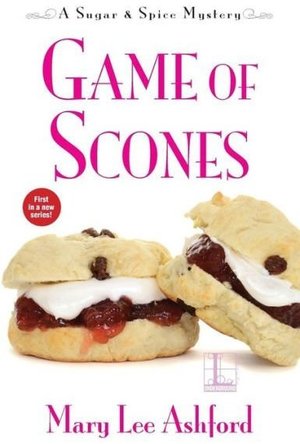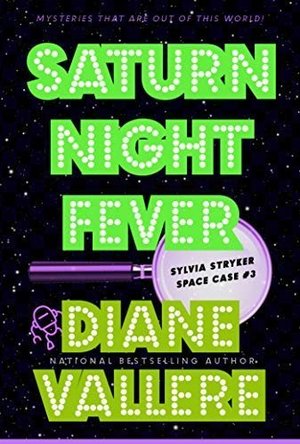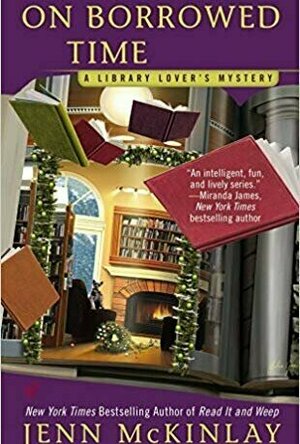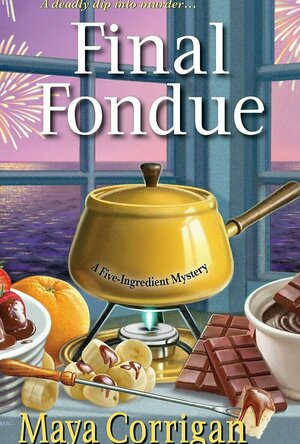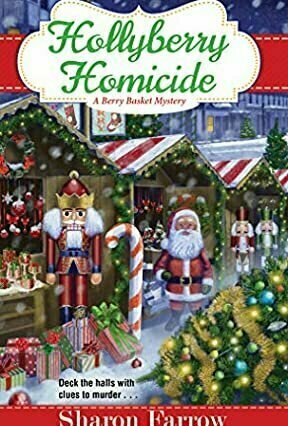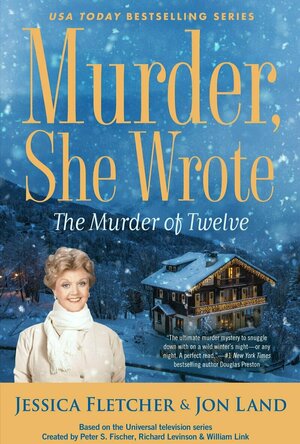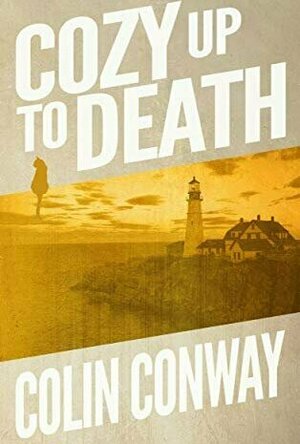Search
Mark @ Carstairs Considers (2478 KP) rated Sunny Side Up in Books
Sep 19, 2018
Cruise of Murder and Bullies
Liam Johnson is thrilled to have landed a job on the prestigious Howard Cruise Line as a waiter. His family needs the money he will be making. However, he quickly discovers that his boss hates him and some of the customers he must deal with delight in making his life miserable as well. That doesn't prepare him for finding the body of one of the passengers dead on the Sunbathing Deck. The ship's doctor is quick to rule it an accidental death due to sunstroke, but Liam isn't so sure. Several things about the scene are off. Can he prove it was murder before the cruise ends?
I really thought this book sounded like fun, but it turned out to be much more somber than I was expecting it to be. Liam faces quite a bit of abuse and bullying over the course of the story, and I didn't find it that fun to read. Even his friends on the ship turn on him regularly. The mystery is well put together with plenty of clues. I did feel things were a bit overly complex, but the clues were all there when Liam explains things at the end. This books definitely falls on the traditional side of the spectrum with a smattering of language and talk about sex (but nothing on the page) that keep it from being a true cozy. This wasn’t' truly a bad book, but I did hope for something sunnier when I picked it up.
I really thought this book sounded like fun, but it turned out to be much more somber than I was expecting it to be. Liam faces quite a bit of abuse and bullying over the course of the story, and I didn't find it that fun to read. Even his friends on the ship turn on him regularly. The mystery is well put together with plenty of clues. I did feel things were a bit overly complex, but the clues were all there when Liam explains things at the end. This books definitely falls on the traditional side of the spectrum with a smattering of language and talk about sex (but nothing on the page) that keep it from being a true cozy. This wasn’t' truly a bad book, but I did hope for something sunnier when I picked it up.
Mark @ Carstairs Considers (2478 KP) rated Game of Scones in Books
Dec 5, 2018
War of the Scones
After losing her job at a food magazine, Rosetta Sugarbaker Calloway, “Sugar” to friends, opens a new business with award winning baker Dixie Spicer. Together, the two will shepherd community cookbooks through the publishing process. Their first project is for the centennial of the town where they live, St. Ignatius, Iowa. However, this cookbook has heated up the feud between Elsie, a member of the most prominent family in town, and Bertie, Dixie's aunt. The two are fighting over which of their scone recipes should be included in the book. When Sugar goes to meet with Elsie to attempt to reach a resolution, she finds Elsie's dead body. Bertie is the prime suspect, but she has disappeared. Is she in danger as well, or is she the killer?
This book gets this new series off to a fun start. Sugar and Dixie are a great duo, and they are surrounded by a fun group of family and friends. I enjoyed getting to know them here, and I'm looking forward to getting to know them better in future books. The town is wonderful, with all the hallmarks of a delightful cozy setting, and I enjoyed the fact that it is in Iowa, not some place we typically go for cozies. I did feel the pacing of the mystery was a bit off, but this never lasted for long, and we had a great climax. We get a total of three recipes at the end of the book, including both scone recipes.
This book gets this new series off to a fun start. Sugar and Dixie are a great duo, and they are surrounded by a fun group of family and friends. I enjoyed getting to know them here, and I'm looking forward to getting to know them better in future books. The town is wonderful, with all the hallmarks of a delightful cozy setting, and I enjoyed the fact that it is in Iowa, not some place we typically go for cozies. I did feel the pacing of the mystery was a bit off, but this never lasted for long, and we had a great climax. We get a total of three recipes at the end of the book, including both scone recipes.
Mark @ Carstairs Considers (2478 KP) rated Saturn Night Fever in Books
Jan 16, 2019
Race to Rescue Pika
It's been a few months since we last saw Sylvia, and in that time, she's been living on Neptune's compound, training with him and her friend, smuggler Mattix. One day, Mattix's ship arrives back at Neptune's place on autopilot. Inside, Neptune and Sylvia find a message from Pika, the little Gremlon who has also been living with them, asking for help. Then they find Mattix's body. Naturally, Neptune and Sylvia do the only thing they can, steal a Moon Unit Corporation ship, hire a small crew, and set out to reach Saturn and figure out what has happened to Pika. But can their crew be trusted? Will they survive the flight?
I was anxious to pick up this book to find out what happened after the revelation that ended the previous book. We definitely get more on that here. In fact, we get plenty on that as Sylvia is also trying to resolve her latest troubles. There are plenty of twists and turns there as well since Sylvia doesn't really know who she can trust. I did feel that in the midst of the twists the original premise got hurt a little, but I may be overthinking things, and it was definitely a minor issues. Author Diane Vallere does a great job of making the science fiction setting and alien characters relatable. Cozy mystery fans like myself will feel right at home here. The alien characters allow for a few more over the top characters, but I loved that, and overall, I still found them to be relatable characters.
I was anxious to pick up this book to find out what happened after the revelation that ended the previous book. We definitely get more on that here. In fact, we get plenty on that as Sylvia is also trying to resolve her latest troubles. There are plenty of twists and turns there as well since Sylvia doesn't really know who she can trust. I did feel that in the midst of the twists the original premise got hurt a little, but I may be overthinking things, and it was definitely a minor issues. Author Diane Vallere does a great job of making the science fiction setting and alien characters relatable. Cozy mystery fans like myself will feel right at home here. The alien characters allow for a few more over the top characters, but I loved that, and overall, I still found them to be relatable characters.
Mark @ Carstairs Considers (2478 KP) rated On Borrowed Time in Books
Dec 15, 2019
Can Lindsey Find Her Brother Before Time Runs Out?
Lindsey Norris is getting ready for the weekly Crafternoon meeting, but she finds a surprise guest hiding out in their usual meeting room – her brother Jack. She wasn’t expecting to see him for a few more weeks when her entire family arrived for Christmas. He begs her to keep his presence a secret and promises to explain everything after a nap. Lindsey returns after the meeting, but instead of her brother, she finds a dead body on the floor. Who is the dead man? Where is her brother? And how much danger is he in?
I originally picked up this book thinking I’d get a Christmas themed cozy. It was quickly obvious that wasn’t going to be the case, but that is hardly a complaint at all. The story was so strong I didn’t want anything slowing it down. It kept my attention the entire time, from the fast-paced opening until it reached the action-packed climax. The love triangle is still going strongly here, although it seems obvious to me which way Lindsey is leaning. It doesn’t take over from the main mystery, and it provides some fun humor along the way. One of the guys gets some nice character development. All the regulars are here and very strong. The new characters don’t get a whole lot of page time, but they do come alive with what little page time they do have. This is a great book that will please fans of the series.
I originally picked up this book thinking I’d get a Christmas themed cozy. It was quickly obvious that wasn’t going to be the case, but that is hardly a complaint at all. The story was so strong I didn’t want anything slowing it down. It kept my attention the entire time, from the fast-paced opening until it reached the action-packed climax. The love triangle is still going strongly here, although it seems obvious to me which way Lindsey is leaning. It doesn’t take over from the main mystery, and it provides some fun humor along the way. One of the guys gets some nice character development. All the regulars are here and very strong. The new characters don’t get a whole lot of page time, but they do come alive with what little page time they do have. This is a great book that will please fans of the series.
Mark @ Carstairs Considers (2478 KP) rated Final Fondue in Books
Nov 15, 2020
Fatal Festival
The town of Bayport, Maryland is holding a festival to celebrate their tri-centennial. Val Deniston is participating with a booth featuring food from her café, while her grandfather is hoping to win one of the contests with his chocolate fondue. And Val has talked Grandfather into renting out some rooms in the house they share to visitors in town for the weekend. These particular guests are there to start work on planning a wedding to take place in the area the next spring. When one of them turns up dead in the backyard, Val begins to question if the killer got their intended victim, or if someone else was the target. Can she figure out what happened?
This book has a solid mystery with great clues sprinkled throughout. Even so, I only began to piece it together about the time that Val started figuring it out. Val’s former life in New York City pops up in a big way in this book, and, while I enjoyed the way this cozy trope played out in this book, I did feel it slowed things down a little. The more I read this series, the more I’ve come to love the characters, especially Val’s grandfather, who is a lot of fun. The suspects are distinct and kept me guessing. At the back of the book are six recipes, including a couple of chocolate fondue recipes, all of which have five or fewer ingredients. This is another fun entry in a tasty series.
This book has a solid mystery with great clues sprinkled throughout. Even so, I only began to piece it together about the time that Val started figuring it out. Val’s former life in New York City pops up in a big way in this book, and, while I enjoyed the way this cozy trope played out in this book, I did feel it slowed things down a little. The more I read this series, the more I’ve come to love the characters, especially Val’s grandfather, who is a lot of fun. The suspects are distinct and kept me guessing. At the back of the book are six recipes, including a couple of chocolate fondue recipes, all of which have five or fewer ingredients. This is another fun entry in a tasty series.
Mark @ Carstairs Considers (2478 KP) rated Hollyberry Homicide in Books
Sep 30, 2020
Will Marlee Make it on Stage as a Ghost?
Marlee Jacobs is looking forward to celebrating Christmas, but before she can get there, she has a few things on her plate. In addition to the usual decorating and present buying, there’s the town hollyberry festival. Plus, she’s taking over the role of Jacob Marley in the town’s annual adaptation of A Christmas Carol at the last minute. The actor who normally plays the part died unexpectedly. Well, maybe not quite so unexpectedly since he was ninety-five. While everyone is certain it was natural causes, something feels off to Marlee. Couple that with the rumors that the play is cursed, and Marlee will have to find time to add sleuthing to her December schedule. What will she uncover?
As you might have guessed, this book’s plot unfolds a little differently from the typical cozy mystery, and I loved it all the more for that fact. Don’t worry, there is always something happening to keep your attention, and I loved how Marlee unraveled everything in the end. The characters in this series are charming, and that’s the case here once again. We get plenty of Christmas spirit in the pages of this book, which is a must for a Christmas entry in a series. Rounding out the book, we get three berry inspired recipes at the end. When you are making a list of Christmas cozies to read this December, make sure this book is on it. No need to check it twice, you’ll definitely enjoy it.
As you might have guessed, this book’s plot unfolds a little differently from the typical cozy mystery, and I loved it all the more for that fact. Don’t worry, there is always something happening to keep your attention, and I loved how Marlee unraveled everything in the end. The characters in this series are charming, and that’s the case here once again. We get plenty of Christmas spirit in the pages of this book, which is a must for a Christmas entry in a series. Rounding out the book, we get three berry inspired recipes at the end. When you are making a list of Christmas cozies to read this December, make sure this book is on it. No need to check it twice, you’ll definitely enjoy it.
Mark @ Carstairs Considers (2478 KP) rated The Murder of Twelve in Books
May 28, 2020
Weddings are Murder
With a record setting blizzard on the way to Cabot Cove, Maine, Jessica Fletcher is planning to hunker down in her temporary home – the Hill House hotel. Before she can do that, she joins Sheriff Metzger when he gets a call about a man found in his car on the edge of town. What at first looks like a tragic accident is indeed murder. On arriving at the hotel, Jessica learns she will be joined for the weekend by a wedding party. But with the bride and groom missing, tempers begin to flair. Then a dead body appears. Are they trapped with a killer? Is it connected to the man outside of town?
This is another fast-moving mystery that obviously pays homage to Agatha Christie’s And Then There Were None. I felt it was a bit more of a thriller (minus the language and violence) than a true cozy, but I’m not complaining since I couldn’t turn the pages fast enough to find out what was going to happen next. Much of the book features Jessica and those trapped in the hotel with her, and they are all strong enough characters to carry the story. Unfortunately, the little bit we did see of the recurring characters fell into predictable patterns, although I still enjoyed spending time with them. The writing was so vivid, I felt the cold as I was reading. Any complaints are minor, and I’m happy I picked up this fast-paced book.
This is another fast-moving mystery that obviously pays homage to Agatha Christie’s And Then There Were None. I felt it was a bit more of a thriller (minus the language and violence) than a true cozy, but I’m not complaining since I couldn’t turn the pages fast enough to find out what was going to happen next. Much of the book features Jessica and those trapped in the hotel with her, and they are all strong enough characters to carry the story. Unfortunately, the little bit we did see of the recurring characters fell into predictable patterns, although I still enjoyed spending time with them. The writing was so vivid, I felt the cold as I was reading. Any complaints are minor, and I’m happy I picked up this fast-paced book.
Mark @ Carstairs Considers (2478 KP) rated Cozy Up to Death in Books
May 12, 2020
Debut that Grew on Me
Today is Brody Steele’s first day running The Red Herring, a mystery bookstore in Pleasant Valley, Maine. However, he’s not a reader. So what is he doing here? It’s a cover since Brody has just entered the Witness Protection Program after turning on his former motorcycle gang. Brody is sure he will find his new life too quiet. However, as he tries to settle into town, he begins to find questions. Is there danger lurking just below the surface?
I’m always looking for something different, so I was intrigued by the premise of this book when I first heard about it. It took a while for the story to get going, but once Brody started to realize something was wrong, I was hooked all the way until the climax. I enjoyed the character growth we saw in Brody, and I liked several other characters as well. I did think the writing could be a bit more polished. I also found a few things about the Witness Protection Program, as described here, a little hard to swallow. Then again, I haven’t done any research on it and instead learned everything I know about it from the TV show In Plain Sight, so I decided to sit back and enjoy the story, which I most certainly did. Despite the series name and book title, we do get more violence than in a typical cozy. Overall, I’m glad I gave the book a chance, and I’m curious to see where the series will go from here.
I’m always looking for something different, so I was intrigued by the premise of this book when I first heard about it. It took a while for the story to get going, but once Brody started to realize something was wrong, I was hooked all the way until the climax. I enjoyed the character growth we saw in Brody, and I liked several other characters as well. I did think the writing could be a bit more polished. I also found a few things about the Witness Protection Program, as described here, a little hard to swallow. Then again, I haven’t done any research on it and instead learned everything I know about it from the TV show In Plain Sight, so I decided to sit back and enjoy the story, which I most certainly did. Despite the series name and book title, we do get more violence than in a typical cozy. Overall, I’m glad I gave the book a chance, and I’m curious to see where the series will go from here.
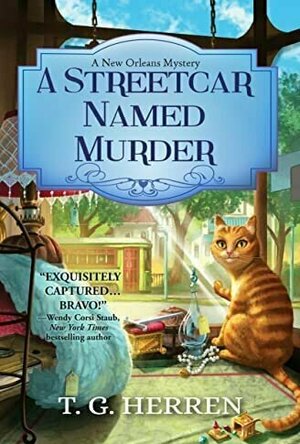
A Streetcar Named Murder
Book
Blackmail in the Big Easy turns to cold-blooded murder in this debut cozy mystery perfect for fans...
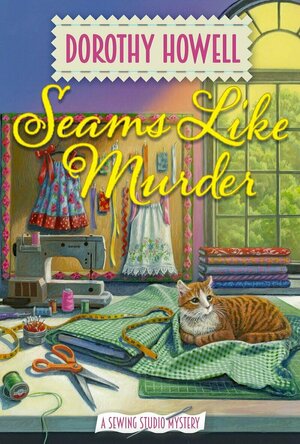
Seams Like Murder
Book
From USA Today bestselling author Dorothy Howell, a brand new cozy mystery series featuring...

